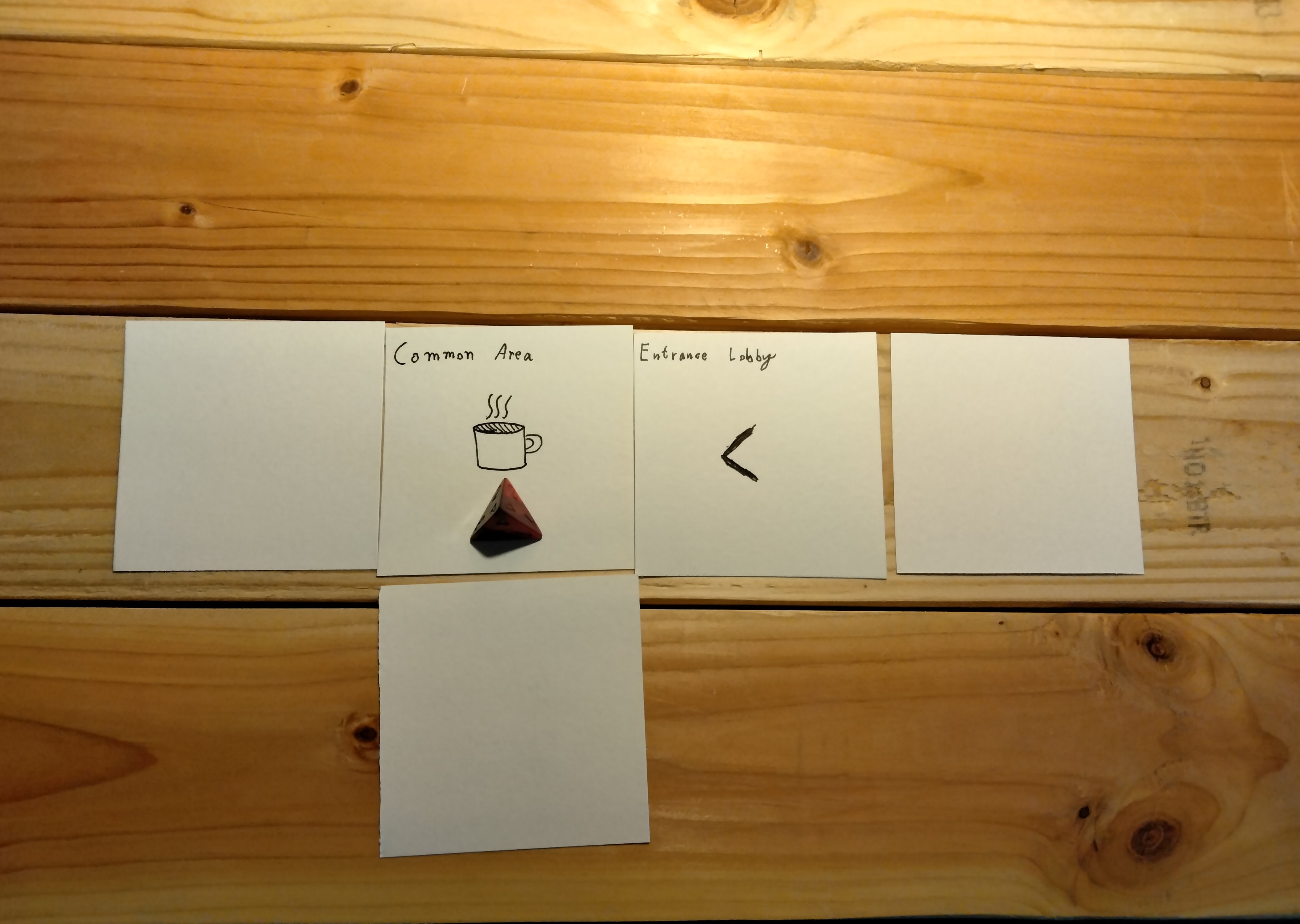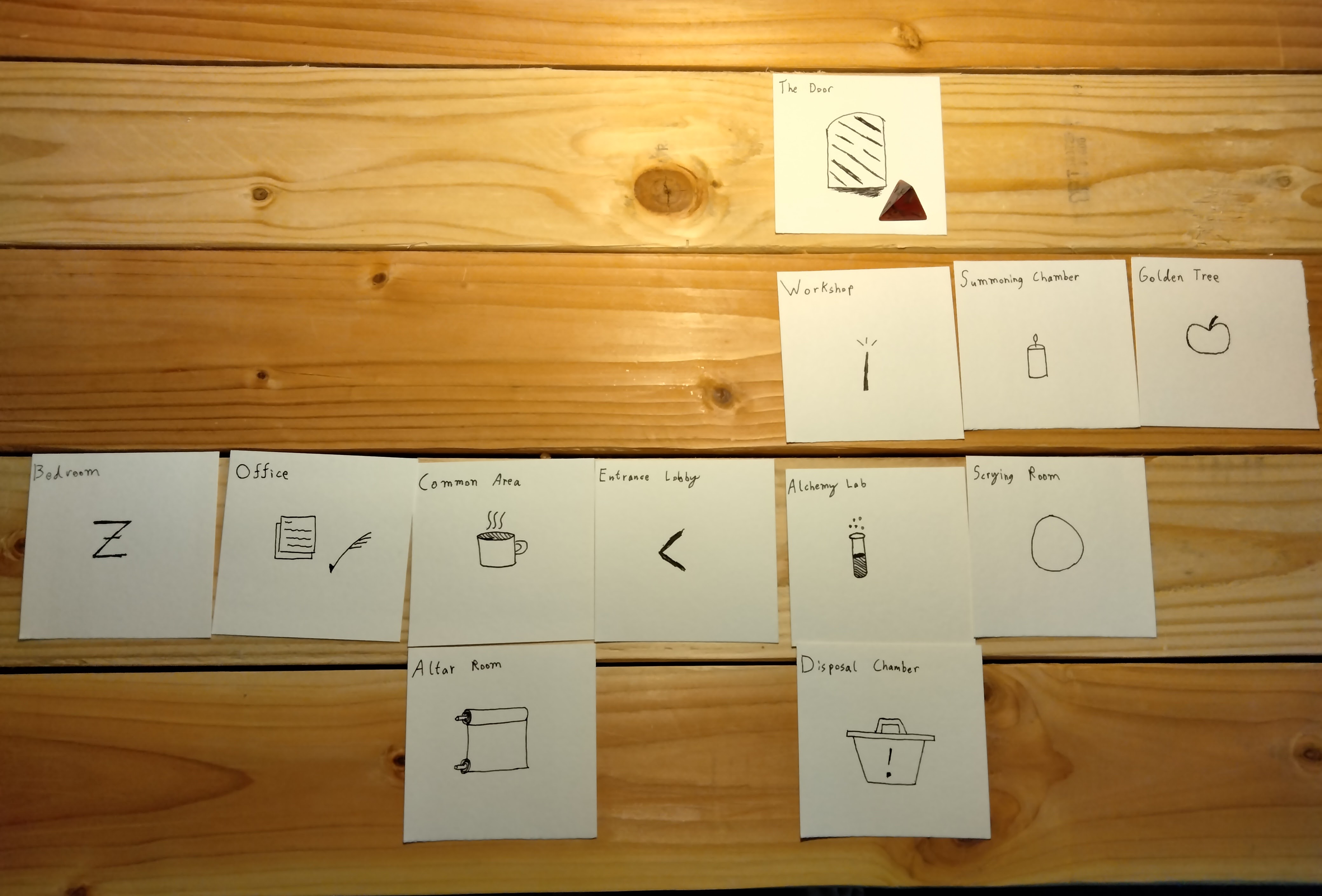Gameplay
The Big Idea
Dungeon Crawl: A tactical, resource-based survival game. Characters are typically between levels 1-10 and rely on their wits, rather than raw power, to succeed.
The Typical Dungeon
An average session consists of the party exploring a map made of index cards. Each Room may contain some manner of threat, treasure, hazard, or oddity. As the party explores, more of the map is revealed, with most single-session dungeons containing roughly twelve rooms.


The Little Ideas
Three Round Combats
By design, combat will rarely last longer than three rounds. Diplomacy, bribery, and ambushes are encouraged.
Short Rests
Long rests are prohibited during sessions. Short rests can be taken by consuming rations. Spellcasters are advised to stock up on scrolls.
Loot and Encumbrance
Loot is valued by weight, with every 5 lbs. of treasure matching 25 gp. The Variant Encumbrance rules put a premium on Strength and storage space.
More
Other mechanics, like Languages, Downtime, Attunement, and Multiclassing are discussed in their own sections.